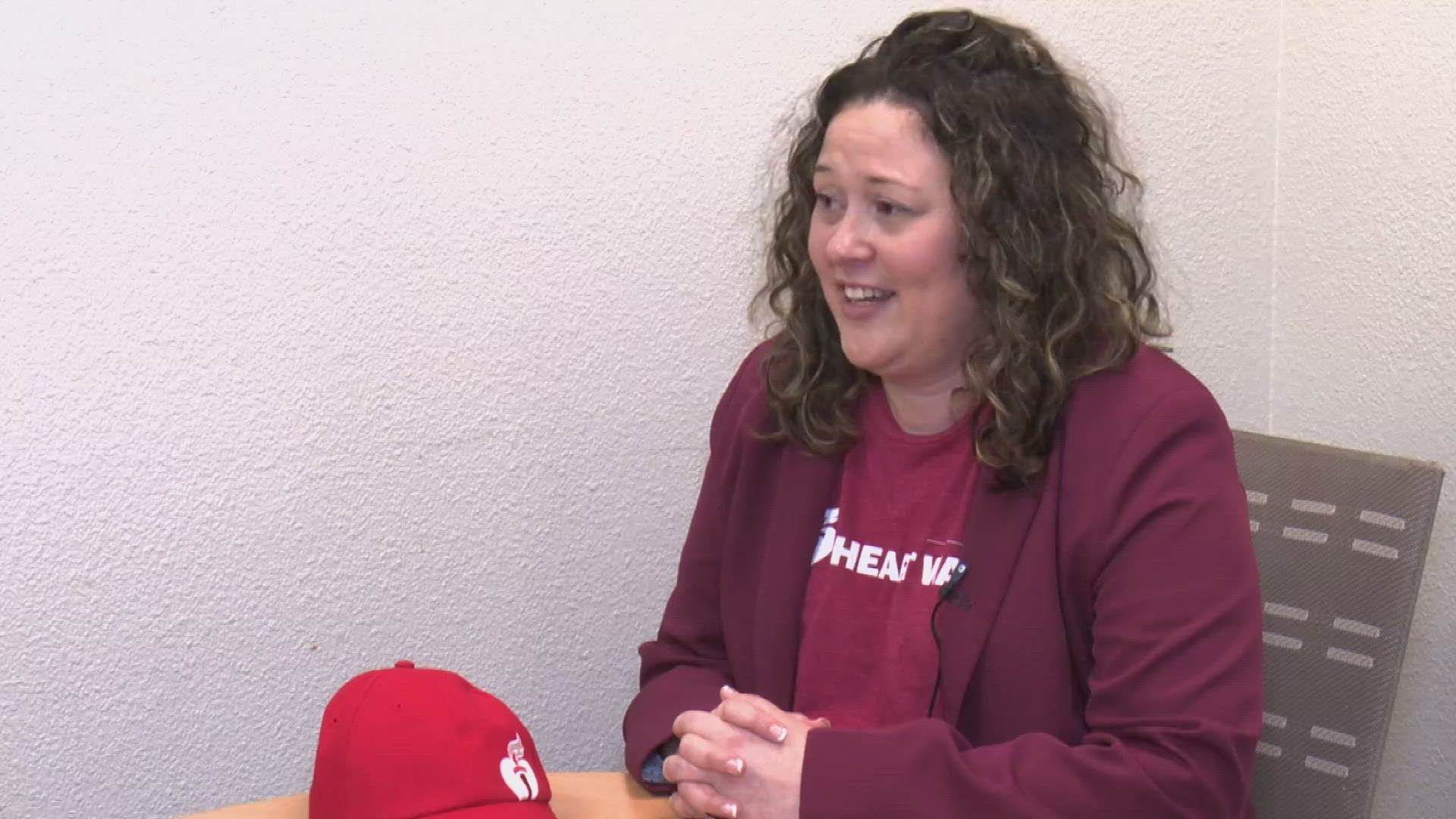SACRAMENTO, Calif. — According to the American Heart Association, nine out of 10 people who have a heart attack outside of the hospital won't survive. That's a sobering statistic, especially for Sacramento resident Lindsay Samples. In 2016, she was on a routine jog when she collapsed.
"I was pulseless, and dying, and I'm so fortunate that strangers decided to intervene," Samples said.
Bystanders performed hands-only CPR until paramedics arrived, saving her cognitive function. Doctors later determined Samples had an undiagnosed congenital heart defect.
"Perhaps technology when I was younger just wasn't available to diagnose, but now I hope that there is," Samples said.
Samples had to get a pacemaker and she still has to undergo surgeries. She's made it her mission to raise funds and awareness for heart disease. She participates in public speaking, talking to lawmakers, and advocacy efforts. She also serves on the board of the American Heart Association Sacramento.
"I feel compelled to have this be my mission and to share my story, and allow for the vulnerability and the re-telling of the story to help motivate people to get out there and learn," Samples said.
Research shows only 20% of people know CPR when it's a skill that only takes minutes to learn. Doing so can triple the survival rate.
"If at least one person in the household learns how to do CPR we can save a lot of lives," Sutter Health Cardiologist and American Heart Association Volunteer Dr. Neelima Vallurupalli said. "Cardiac arrest can happen in any age group. That's another misinformation, that it's going to be the older patients with known heart disease who are at high risk for cardiac arrest, but as we have seen on various occasions that its not true."
Statistically, strangers don't perform CPR on women. It's due to a number of factors but many say they don't want to hurt them, worried about inappropriate touching, or possible assault accusations. One thing to note is Good Samaritan laws offer some form of protection in all 50 states. Samples asks that you don't shy away.
"Please, there people out there especially women who need your help," Samples said. "You don't know when you're going to need to use it, it may not be on a loved one, it may be on a stranger and that stranger has now become a friend."
Watch more on ABC10 | People who test positive for COVID-19 can still go to work, as long as they don't have symptoms

















